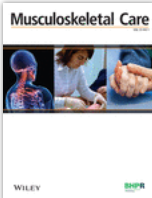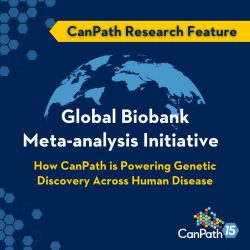Quality of Non‐Surgical and Non‐Pharmacological Knee Osteoarthritis Care in the Maritimes
Authors: Aleksandra Budarick, Cheryl Hubley-Kozey, Linda Li, Olga Theou, William Stanish Journal: Musculoskeletal Care Objectives: To evaluate the quality and types of care individuals with mild‐to‐moderate knee osteoarthritis receive in the Canadian Maritime provinces, and determine associations with demographic, social, and patient‐reported factors. Methods: Individuals with knee osteoarthritis were invited to complete a healthcare quality survey based on the British Columbia Osteoarthritis (BC OA) survey. The cross‐sectional descriptive observational survey assessed four healthcare quality indicators: advice to exercise, advice to lose weight, assessment of ambulatory function, and assessment of non‐ambulatory function. Pass‐rates were calculated overall and for each quality indicator. Binary logistic regressions determined associations between quality indicators and demographic, social, and patient‐reported outcomes. Patient‐reported use of exercise and diet as arthritis treatments were added to the quality indicator eligibility criteria as a sensitivity analysis. Results: Participants (n = 241) had a mean age of 67 (7) years, body mass index of 30.7 (7.5) kg/m2 and were 77% female. The overall pass rate was 42.9% using the BC OA criteria, and 49.3% in the sensitivity analysis. Individual quality indicator pass‐rates ranged from 4.3% for non‐ambulatory function to 85.7% for ambulatory function assessments. The sensitivity analysis increased pass‐rates for advice to exercise (61.9%–69.3%) and advice to lose weight (27.9%–35.1%). Pass‐rates were not driven by demographic, social, or patient‐reported factors. Conclusions: Over half of individuals with mild‐to‐moderate knee osteoarthritis did not receive recommended core treatments in the Maritimes, highlighting a need to improve care for this patient group. Quality indicators should be routinely evaluated to determine whether clinical care aligns with best practice guidelines. doi: 10.1002/msc.70047 Last Updated on January 15, 2025




